What does it take to create a new malt whisky business?
- Published
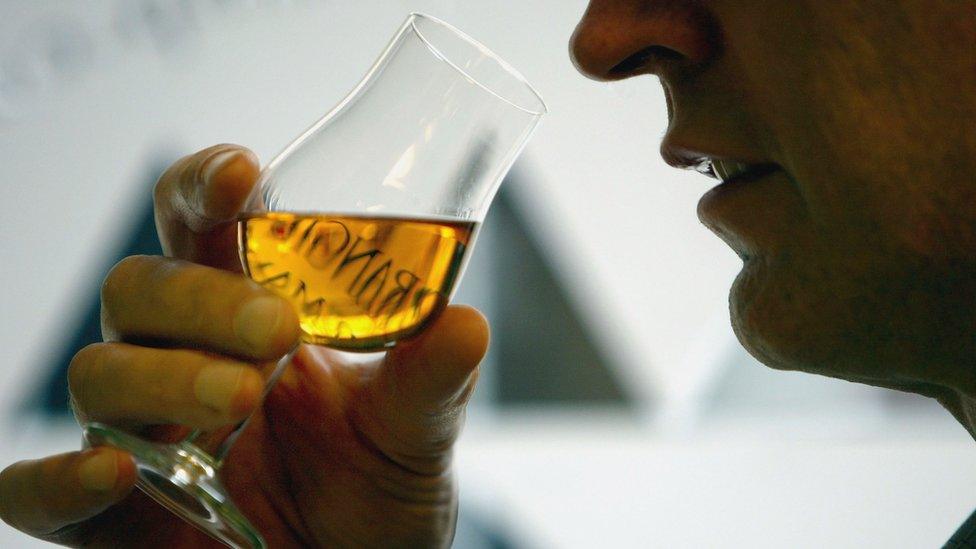
For many fans of a wee dram, their whisky has to be a single malt
"Once you're selling everything you make, it's a licence to print money," says whisky consultant Jim Swan.
Mr Swan, who advises distilleries around the world, is talking about Scotland's prized single malt whiskies.
Considered by most whisky aficionados to be the pinnacle of the industry, single malts are whiskies made from a single distillery using only malted barley.
They typically command a premium price over blended whiskies.
Mr Swan says selling a popular single malt can be "very profitable".
"An entry level single malt whisky [from an independent distillery] might cost £45, with a profit of £15 per bottle," he says.
"And once people are spending money on more expensive whisky, then you could be looking at 90% profit per bottle."
Meanwhile the industry is continuing to boom - exports alone of single malt whiskies in the first half of 2015 totalled £406m, a rise of 5%, according to the Scotch Whisky Association.
Yet while an apparently attractive financial proposition, creating a new malt whisky business from scratch is not for the faint-hearted, or the cash poor.
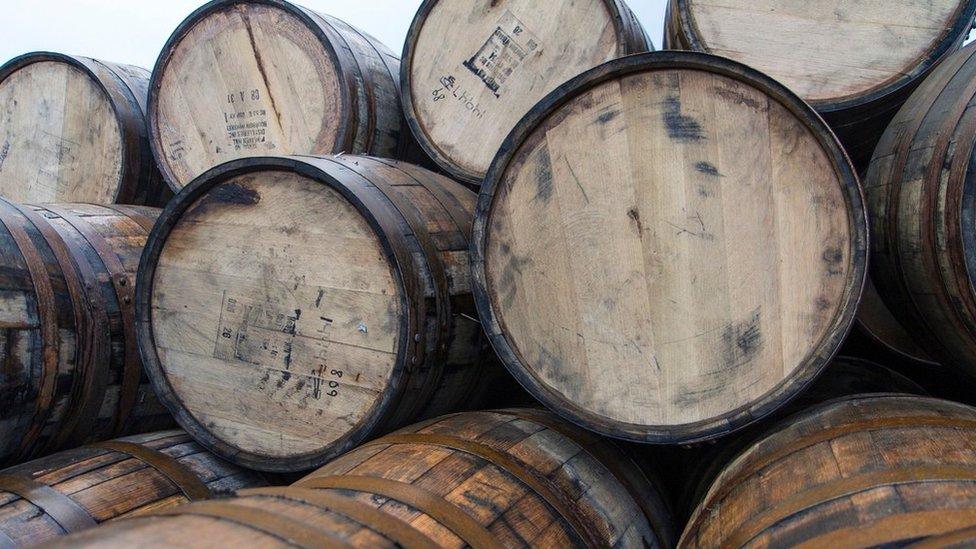
To be called Scotch, legislation dictates that the spirit must mature in oak casks in Scotland for at least three years
It requires millions of pounds in upfront investment, but can take years to see any result, as you have to wait at least three years, or more often eight or 10, before the whisky is ready for bottling and sale.
"There's no point in even thinking about it unless you come up with at least £5m," says Mr Swan. "And then you need money to keep you going until the whisky is ready."
He estimates £250,000 per year is needed to keep a small commercial mash operating, and it is likely to be eight years before a whisky business breaks even.
Despite this, the number of distilleries in Scotland, the world's largest producer of single malt whisky, is growing. There are currently 117, up from 100 a couple of years ago, and 30 of these are small independents.
Here three new independent whisky producers explain how they started out, and the challenges they face.
'Extremely happy'
The time it takes to get your product to market can create challenges in securing the initial investment, as 38-year-old Kingsbarns Distillery founder Douglas Clement can testify.
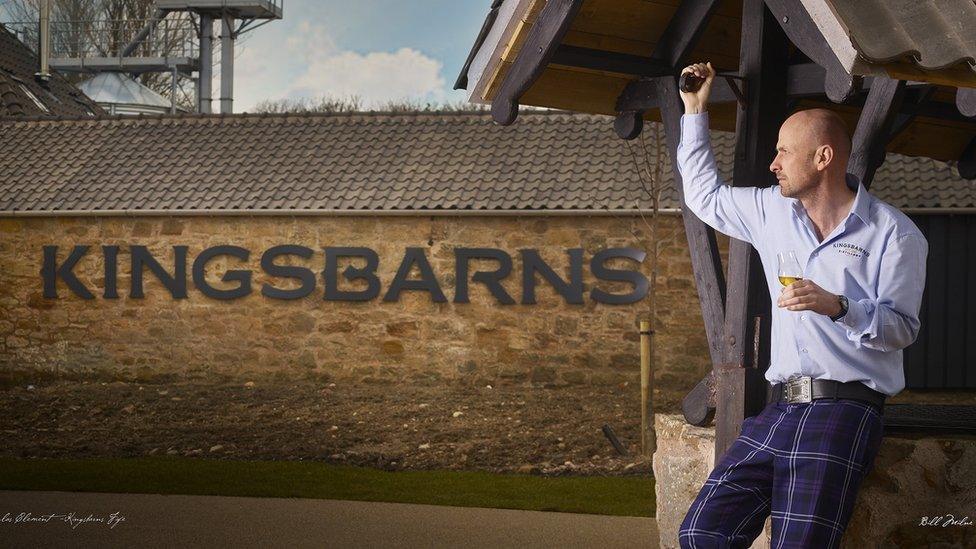
Douglas Clement founded Kingsbarn after working as a golf caddy for 20 years
He worked as a caddy in St Andrews for 20 years, and decided to start a whisky distillery after visiting golfers repeatedly expressed frustration at the lack of a nearby distillery. Mr Clement raised initial funds for Kingsbarns by approaching his golf clients then spent 18 months being rejected by venture capitalists.
"Most investors want a return in three to five years. The trouble with whisky is that they won't see much for about 10 years," explains Mr Clement.
The turning point came in 2012 when he secured a £670,000 grant from the Scottish Government. It was enough to convince one of the oldest families in Scotland, the Wemyss family which already own independent bottler Wemyss Malts, and gin brand Darnley's View, to invest £2.5 to £3m.
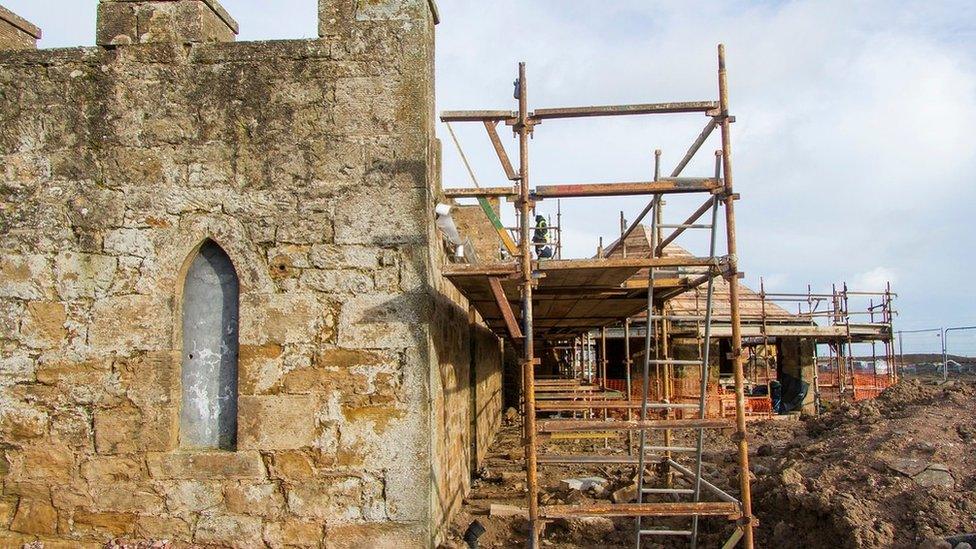
Kingsbarns renovated an old building to create its distillery
Mr Clement sold his interest in the venture to them, and he is now employed as visitor centre manager, though remains founding director, an arrangement he says he's "extremely happy" with.
"This project for me personally was never about profit. It was about taking my idea for a whisky distillery by the home of golf and the area I was born and raised, and turning it into a reality," he says.
It will be summer 2018 before the first release of Kingsbarns single malt. In the meantime, they are finding other ways to make money, such as the income from their visitor centre, shop and cafe.
Grant support
For the Shetland Distillery Company, a visitor centre was not a viable option because of the remoteness of their base on the Unst, the most northern of the Shetland islands.
Instead the four founders have opted to distil gin, as a means of generating income while they wait for the whisky to mature, due to the lower start-up costs of around £110,000.
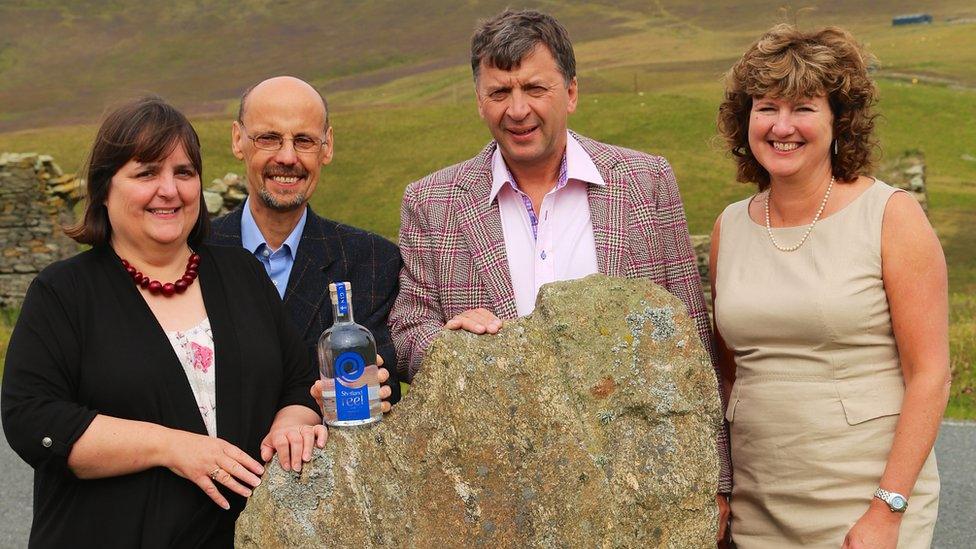
The four founders of the Shetland Distillery Company started off distilling gin due to the lower start-up costs
Stuart Nickerson, 59, has worked in the whisky industry for more than three decades. To establish the Shetland Distillery he has his wife Wilma have joined forces with fellow married couple Frank and Debbie Strang.
The firm has been funded with their own money, and grants from the Scottish Government's economic and community development agency. They began selling gin in November 2014, and so far they've produced around 10,000 bottles.
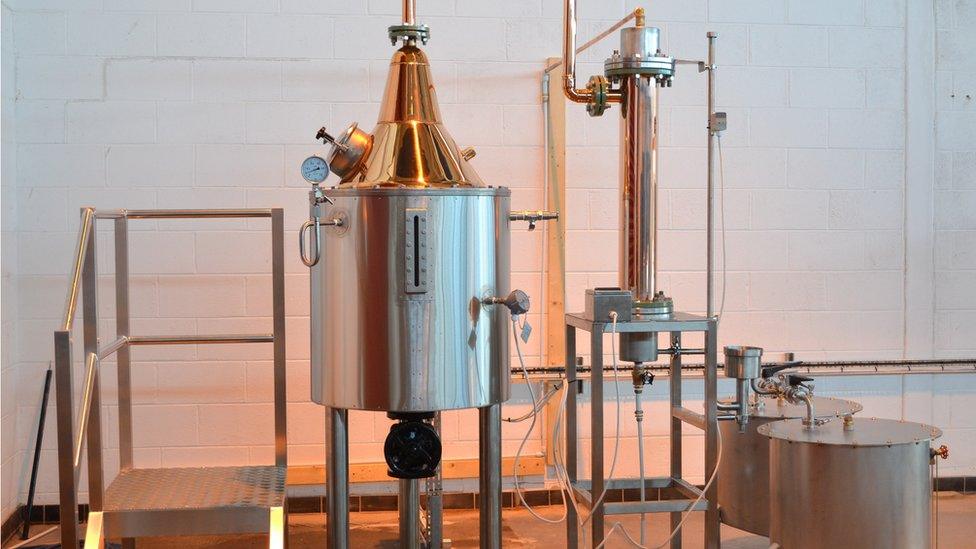
The Shetland Distillery Company is based on the remote island of Unst in the Shetland Islands
Later this year they will build the whisky distillery at a cost of £1.5m, for the equipment, and another £250,000 each year to build stock. For this, they are looking at debt financing and more grants.
Mr Nickerson says: "Shetland is the only area in Scotland that [currently] has no whisky distillery. It's very remote on Unst, to get here, it's a 12-hour journey.
"There are cost challenges associated with that. Whatever we make has to compete at the higher end of the market because of our higher costs."
'Pretty hairy'
Anthony Wills, the 59-year-old founder of Kilchoman Distillery on the Isle of Islay, knows all about weighing up the options when it comes to getting the business started.
He ran his own independent whisky bottling company for eight years, but decided to start producing it himself.
Total set-up costs for the first distillery to be built on Islay for 124 years were £6m from 30 private investors, as well as £500,000 of Mr Wills' own money.
He says that raising funds was the most difficult part, and, when he found it hard to raise more than £1m, he opted to build the distillery anyway.
"It was a bit risky but I thought it would be easier to raise the balance once people could see the operation," he says. "It worked, but we've had times when it's been pretty hairy."
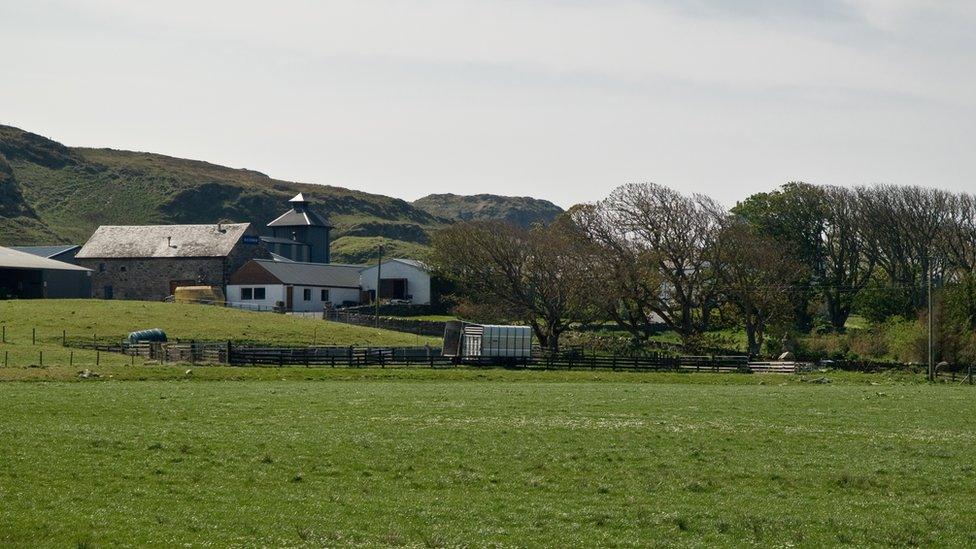
Kilchoman Distillery is based on the Isle of Islay
Production began in December 2005, and the first malt came on the market in September 2009 with 8,000 bottles on limited release - they sold out within two weeks.
In whisky terms, the distillery had success very early, making a profit in its fifth year. The whisky remains in high demand - the cheapest bottle costing £45 and the most expensive £80 - and, in 2014, the firm's turnover was £3.6m.
It's an undoubted success, but Mr Wills says it has not been easy.
"If I'd looked at it rationally, I would never have done it. It's been a lot of hard work and grief but, for us, it's been worth it."